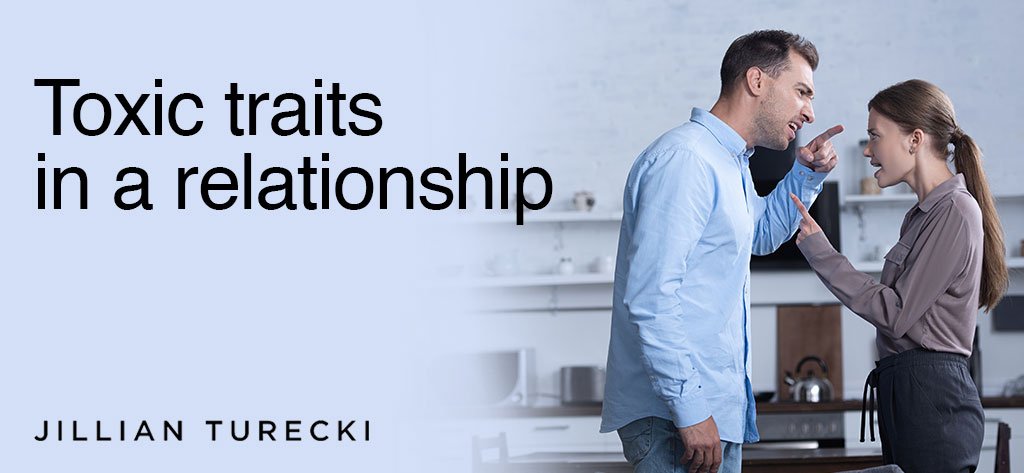Traits of a Toxic Relationship
No one wants to be in an unhealthy relationship. Recognizing and admitting you are in a relationship with a toxic person can be hard, especially if you love the toxic individual. However, relationship toxicity is hazardous to both your mental and physical health.
Recognizing the signs of a toxic relationship is the first step in understanding if your relationship is toxic and what you can do about it.
There are also different types of toxic relationships. Toxic marriages or toxic partners are one thing, but you can also encounter toxic people amongst your family and friends. In these instances, toxic behaviors may be even harder to spot and even harder to admit.
Toxic Vs. Healthy Behavior In Relationships
Before we go any further here is a very simple list of toxic behaviors and healthy behaviors in relationships.
Toxic Behavior
Insecure
Negative
Disrespectful
Controlling
Abusive
Jealous
Self-centered
Healthy Behavior
Secure
Positive
Respectful
Encouraging
Compassionate
Loving
Giving
If you identify more with the toxic list than the healthy list then you are definitely experiencing relationship toxicity. This can affect your self-esteem, lead you to feel drained or constantly on edge and impact other areas of your life in a negative way.
Read on to understand how toxic behavior can manifest in relationships.
Constant Stress
Constant stress is a sign of toxicity that can often go unnoticed or be attributed to other things. If a relationship leaves you feeling drained more often than it leaves you feeling fulfilled then it is not a healthy relationship. And if you are constantly walking on eggshells, you know you do not feel safe in the relationship.
Toxic Communication
Toxic communication is always damaging to any relationship. Blaming, being defensive, disrespecting and refusing to communicate are all forms of toxic communication that can eat away at the foundations of even the best relationship. We all feel badly when we say something in an argument that we didn’t mean, or even that we did mean but we know we’ve communicated in the wrong way.
Once we get into unhealthy patterns these toxic behaviors become hard to avoid. Blaming one another or getting defensive can easily be our go-to response when we feel criticized or under attack. But the problem is if your partner feels blamed or disrespected by what you are saying their response is unlikely to be the one you were hoping for.
Spend time thinking about what you actually need the other person to hear and instead of saying something against them turn it around to focus on how you are feeling.
A Lack of Trust
A lack of trust in a relationship stops that person from being someone you feel you can rely on and be vulnerable with.
A lack of trust can be about fidelity, but it can also manifest in feeling like your partner isn’t there for you or isn’t acting in your best interests.
A Reduction in Your Self Esteem
One of the impacts of a toxic relationship is that it affects your self esteem. People leaving abusive relationships often comment on how they feel like a shadow of their former selves.
Healthy relationships bring out the best in you. They are nourishing and make you feel good. They are supportive and help you achieve your dreams. Bad relationships can leave you feeling worthless and like you don’t deserve any better.
If you feel like your self-esteem has taken a beating, or loved ones have mentioned that you don’t seem yourself, it could be time to take a look at your relationships.
You’re Constantly Defending the Other Person
If you find you are constantly defending the other person or making excuses for their bad behaviors, this could be a sign that the relationship is toxic.
Many people in toxic relationships find they withdraw from family and friends, or stop confiding about their relationship when things start turning toxic. If you are hiding your relationship from loved ones, ask yourself why? Admitting a relationship is unhealthy can be hard, but you will be better off for it in the long run.
Abuse
Not all toxic relationships are abusive but all abusive relationships are toxic. If someone is physically abusing you, or you physically abuse them then this is a serious red flag. No one should have to spend time with someone who abuses them whether the abuse is physical or emotional.
Leaving an abusive partner can be incredibly difficult but there are lots of places you can find support including the National Domestic Abuse Hotline.
Final Thoughts
The most important thing to remember is that we all deserve and are capable of building healthy relationships.
A healthy relationship is one where you feel safe and free to express yourself. It is a relationship that is supportive, trusting and free of controlling behaviors or any kind of physical or emotional abuse.
Healthy relationships require healthy communication, healthy boundaries and love, support and respect from both sides.
If you are in an abusive relationship, whether that is physical violence or verbal abuse you should take the steps required to leave the relationship.
Even without abuse you may still be happier and healthier leaving if the relationship is toxic. If you recognize any of the above traits in any of your relationships treat them as red flags not to be ignored. Constant stress and feeling drained can have long term physical and mental implications, so any sign of toxicity should be taken seriously.
If the relationship ends up being unfixable I would recommend working through the workbook “Grit & Grace: 7 Steps to Survive Heartbreak.” This workbook will take you through 7 practical steps to help you heal mentally and emotionally. Reframing heartbreak and allowing you to move forward and enjoy healthy loving relationships in the future.

